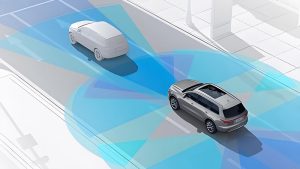As industries increasingly adopt automation, LiDAR technology is playing a critical role in enhancing manufacturing processes. LiDAR offers unparalleled precision in monitoring production lines, inspecting products, and optimizing workflow, helping manufacturers improve both efficiency and product quality. This article explores how LiDAR is shaping the future of automated manufacturing.
Precision Monitoring in Manufacturing
LiDAR provides real-time 3D scanning and measurements, which are crucial for monitoring automated production lines. Here’s how LiDAR enhances manufacturing:
- Production Line Monitoring: LiDAR can continuously scan and monitor the production process, ensuring that machinery operates within precise tolerances. This prevents defects by identifying misalignments or irregularities early in the process.
- Workflow Optimization: LiDAR data helps optimize workflow by providing insights into how space is utilized in factories. This enables manufacturers to adjust machine placement and material flow, maximizing efficiency and minimizing waste.
Quality Control and Defect Detection
One of the most significant benefits of LiDAR in manufacturing is its ability to improve quality control:
- Detailed Product Inspection: LiDAR can scan finished products in high detail, detecting even minor defects that might be missed by human inspectors or traditional sensors. This ensures that only products meeting exact specifications reach the customer.
- Non-Intrusive Inspection: Unlike other inspection methods, LiDAR is non-contact, meaning it can evaluate fragile or complex components without causing damage. This is particularly useful in industries such as electronics and aerospace.
Conclusion
LiDAR technology is transforming automated manufacturing by providing precision monitoring and improving quality control processes. Its ability to optimize production lines and detect defects early on makes it a valuable tool for manufacturers aiming to increase efficiency and product quality. As manufacturing becomes more automated, LiDAR will continue to play a key role in ensuring accuracy and innovation.


